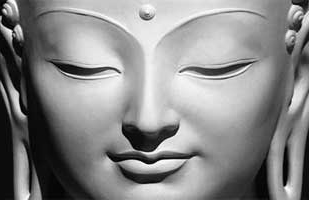
Chapter XXIV - TANHA VAGGA - Craving

IT IS FOOLISH TO RETURN TO THE WORLDLY LIFE
Yo nibbanatho vanadhimutto vana mutto vanam eva dhavati
Tam puggalam etha passatha mutto bandhanam eva dhavati. [344]
Having left the forest of desire (i.e. the life of a householder), he takes to the forest of the practice (i.e the life of a bhikkhu); but after being freed from the household he rushes back to it. Come, look at that man who having become free rushes back into that very bondage.1 [344]
XXIV: 03 A man who faced death bravely
As a pupil of Venerable Maha Kassapa, a certain bhikkhu had achieved the four mental absorptions (jhanas). One day when he saw some beautiful objects in the house of his uncle who was a goldsmith, he developed a strong craving * for them. Then he left the Order. As a layman, he was lazy and did not work hard. So, his uncle drove him out of the house. Subsequently he became a thief to support himself. One day he was caught by the authorities and was taken to the cemetery to be executed. The Venerable Maha Kassapa saw his former pupil and exhorted him, 'My pupil, keep your mind steadfastly on a subject of meditation.' As instructed, he concentrated and established himself in deep mental absorption.
At the cemetery, the executioners told him, 'We are going to kill you,' and started preparing for the execution. He showed no signs of fear or anxiety, in spite of the fact that they were going to execute him. He just sat down in deep mental absorption, ** oblivious to all the dangers before him.
Being impressed by his courage and composure, the executioners exclaimed, 'Just look at this thief. Though he is to be executed yet he neither trembles nor quakes. We have never come across such a man. He is indeed a very brave man.'The executioners then suggested that it would be better to inform the King of the strange behavior of the thief. When the King learned of the circumstances, he gave order to release the thief.
The Buddha on hearing about the matter, sent forth his radiance and exhorted the thief, 'Having left the forest of desire (i.e., the life of a householder); he takes to the forest of the practice (i.e., the life of a bhikkhu); but when he is free from the forest of desire, he rushes back into that very bondage.'
The Buddha also admonished him, 'Purify your mind of all mental defilements. Uproot desires and be free.'
The thief, keeping his mind firmly on the arising and perishing of component things and discerning the impermanent, unsatisfactory and non-self nature of all conditioned things, soon attained the first stage of Sainthood.
Later he went to pay his respects to the Buddha at the Veluvana Monastery. He was readmitted to the Holy Order by the Buddha. Receiving further guidance from the Buddha, he quickly attained Arahanthood.
Notes:
* One can still be subject to craving even though he has developed in meditation. Such people can use their powers for evil ends.
**Deep mental absorption is known as Jhana. A bhikkhu aloof from sensuality, aloof from demeritorious states, enters into the First Jhana, which is accompanied by discursive thinking, reasoning, investigation and discrimination, and is characterised by rapture and joy; and therein he dwells. Suppressing reasoning and investigation, with the mind internally tranquillised and with one-pointed concentration he enters into the Second Jhana, which is free from reasoning and investigation but is produced by concentration and accompanied by rapture and joy; and therein he dwells. With rapture ceasing, indifferent, mindful and attentive, and experiencing ease of body he enters into the Third Jhana, which the Noble Ones describe as indifferent and mindful, he lives happily; and therein he dwells. Abandoning joy, abandoning suffering, giving up all previous joy and sorrow, he enters into the Fourth Jhana which is characterised by the absence of suffering and pleasure but is associated with mindfulness purified by indifference; and therein he dwells.
- Here is a pun on the two meanings of vana, forest and desire.
- Through the six sense-doors.
- That is, from the six sense-doors.
- Resting on the six sense-objects.
- There are five kinds of bonds (sanga) - namely, lust, hatred, delusion, pride, and false views.

Editor for Buddha brothers: Matthew Laird Acred
If you should encounter any bugs broken links, or display errors just email us.
Buddha brothers has been running since Aug 2010 and can continue to run with your kind help!
If you love our website please donate so we can make this site even better !!